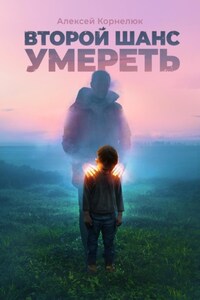For my parents
After his death in Babylon in 323 BC, the body of Alexander the Great was taken in a magnificent procession to Egypt for eventual burial in Alexandria, where it remained on display for some six hundred years.
Alexander’s mausoleum was considered a wonder of the world. Roman emperors including Julius Caesar, Augustus and Caracalla paid pilgrimages. Yet after a series of earthquakes, fires and wars, Alexandria fell into decline and the tomb was lost.
Despite numerous excavations, it has never been found.
The Libyan Desert, 318 BC
There was a freshwater spring at the lowest point of the cave, like a single black nail at the tip of a twisted, charred and mutilated leg. A thick layer of lichen and other scum clotted its surface, barely disturbed in centuries except to ripple and shiver at the touch of one of the insects that lived upon it, or dimple with bubbles of gas belched from deep beneath the floor of the surrounding desert.
Suddenly the skin burst, and the head and shoulders of a man erupted from the water. His face was turned upwards and instantly he gasped huge heaves of life-giving air through his flared nostrils and gaping mouth, as though he’d stayed underwater beyond the limit of his endurance. His breaths didn’t lessen in intensity as the moments passed; rather, they grew ever more desperate, as though his heart was about to burst inside his chest. But at length he reached and passed the worst.
There was no light at all in the cave, not even a phosphorescence of water; and the man’s relief at surviving his underwater flight quickly turned to distress that he’d merely exchanged one mode of death for another. He felt around the edge of the pool until he found a low ledge. He heaved himself up, twisted round to sit upon it. Almost as an afterthought, he reached beneath his soaking tunic for his dagger; but in truth, there was little danger of pursuit. He’d had to fight and kick his way through every inch of that watery escape. He’d like to see that fat Libyan who’d aimed to stick him with his sword try to follow; for sure, he’d cork in the passage, and it wouldn’t spit him out till he’d lost some flesh.
Something whirred past his cheek. He cried out in terror and threw up his hands. The echo was curiously slow and deep for what he’d imagined to be a small cave. Something else flapped past him. It sounded like a bird, but no bird could navigate in such darkness. Perhaps a bat. He’d certainly seen colonies of them at dusk, swarming the distant orchards like midges. His hopes rose. If these were those same bats, there had to be a way out of here. He surveyed the rock walls with his hands, then began to climb the gentlest wall. He wasn’t an athletic man, and the ascent was nightmarish in the dark, though at least the walls were gaunt with holds. When he reached a place from which there was no possible advance, he retreated and found another route. Then another. Hours passed. More hours. He grew hungry and tired. One time he fell crashing to the base, crying out in terror. A broken leg would end him as surely as it would end a mule, but he cracked his head against rock instead, and blackness claimed him.
When he came to, he wasn’t sure for a blessed moment where he was, or why. When memory returned, he felt such despair that he considered returning the way he’d come. But he couldn’t face that passage again. No. Better to press on. He tried the rock wall once more. And again. And finally, on his next attempt, he reached a precarious ledge high above the cavern floor, barely wide enough for him to kneel. He crawled forwards and upwards, the rock-face to his left, nothing at all to his right, only too aware that a single mistake would plunge him to certain death. The knowledge didn’t impede him but rather added sharpness to his concentration.
The ledge closed around him so that it felt as if he was crawling inside the belly of a stone serpent. Soon the darkness wasn’t quite so pure as it had been. Then it grew almost light and he emerged shockingly into the setting sun, so dazzling after his long blindness that he had to throw up a forearm to protect his eyes.
The setting sun! A day at least had passed since Ptolemy’s ambush. He inched closer to the lip, looked down. Nothing but sheer rocks and certain death. He looked up instead. It was still steep, but it looked manageable. The sun would soon be gone. He began to climb at once, looking neither down nor up, contenting himself with progress rather than haste. Patience served him well. Several times the sandstone crumbled in his hand or beneath his foot. The last glow of daylight faded as he reached an overhanging brow. There was no going back now, so he steeled himself, then committed totally to it, hauling himself up with his fingernails and palms and elbows, scrabbling frantically with his knees and feet, scraping his skin raw on the rough rock, until finally he made it over and he rolled onto his back, staring thankfully up at the night sky.










